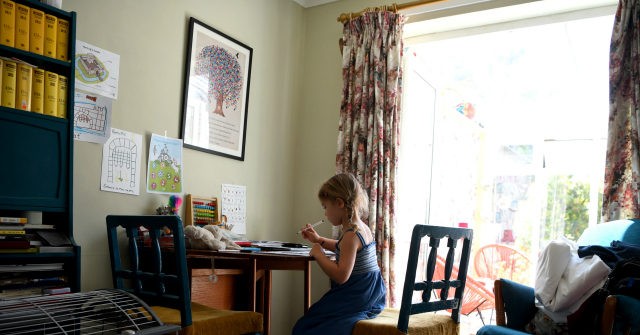
A Johns Hopkins University literature evaluation and meta-analysis of the results of lockdowns on death stemming from the Chinese coronavirus found that “lockdowns have had little to no public health effects,” and have “imposed enormous economic and social costs where they have actually been adopted.”
“While this meta-analysis concludes that lockdowns have actually had little to no public health effects, they have imposed massive financial and social costs where they have actually been adopted,” the authors of the Johns Hopkins University review composed.
“In consequence, lockdown policies are ill-founded and ought to be rejected as a pandemic policy instrument,” they added.
The authors are Jonas Herby, unique consultant at Center for Political Researches in Copenhagen, Denmark; Lars Jonung, teacher emeritus in economics at Lund University, Sweden; and Steve H. Hanke, a Professor of Applied Economics and Creator & Co-Director of The Johns Hopkins Institute for Applied Economics, Global Health, and the Research Study of Company Business.
The study, the authors said, was “created to determine whether there is empirical proof to support the belief that ‘lockdowns’ decrease COVID-19 death.” The authors specified lockdowns “as the imposition of a minimum of one compulsory, non-pharmaceutical intervention (NPI).”
NPIs, they explained, “are any government mandate that directly limit individuals’ possibilities, such as policies that limit internal motion, close schools and businesses, and ban global travel.”
The authors noted that “public health professionals and political leaders” have “embraced required lockdowns” as an efficient approach for resolving the pandemic, which their meta-analysis addresses the concern on whether lockdown policies have actually been effective in curbing coronavirus death.
“To answer our concern, we concentrated on research studies that analyze the real impact of lockdowns on COVID-19 mortality rates based upon signed up cross-sectional death data and a counterfactual distinction in-difference technique,” the authors explained.
Herby, Jonung, and Hanke further discussed their technique:
This research study employed an organized search and screening procedure in which 18,590 studies are recognized that could potentially deal with the belief positioned. After three levels of screening, 34 research studies eventually certified. Of those 34 eligible research studies, 24 gotten approved for inclusion in the meta analysis. They were separated into three groups: lockdown stringency index research studies, shelter-in-placeorder (SIPO) studies, and particular NPI studies.
An analysis of each of these three groups support the conclusion that lockdowns have actually had little to no impact on COVID-19 mortality. More particularly, stringency index studies discover that lockdowns in Europe and the United States only decreased COVID-19 death by 0.2% on average.
“SIPOs were also inefficient, only minimizing COVID-19 mortality by 2.9% typically,” the research study included. “Particular NPI research studies likewise find no broad-based proof of visible impacts on COVID-19 death.”
In conclusion, “our meta-analysis stops working to verify that lockdowns have had a large, considerable impact on mortality rates,” the authors wrote.
The review likewise kept in mind that research studies taking a look at particular NPIs, such as “lockdown vs. no lockdown, facemasks, closing non-essential businesses, border closures, school closures, and restricting gatherings,” likewise discovered “no broad-based evidence of obvious impacts on COVID-19 death.”
The authors went on to say that “closing non-essential services appears to have had some result” on curbing coronavirus mortality, but that this finding is likely “related to the closure of bars.”
The impact of border closures, school closures and restricting gatherings on COVID-19 death yields precision-weighted estimates of -0.1%, -4.4%, and 1.6%, respectively,” they included.
You can follow Alana Mastrangelo on Facebookand Twitter at @ARmastrangelo, and on Instagram.

